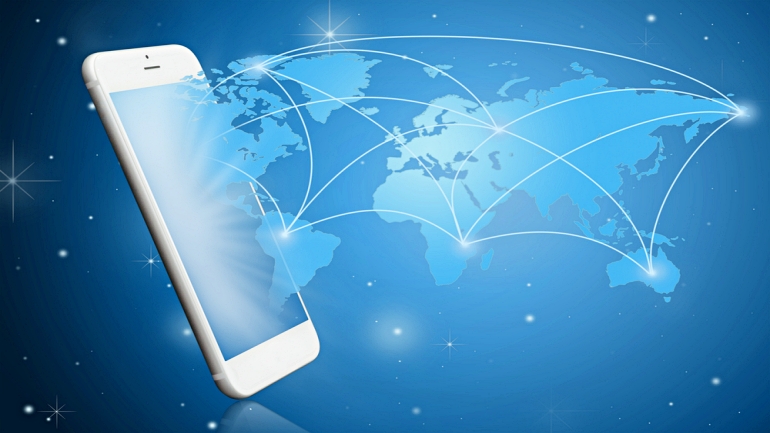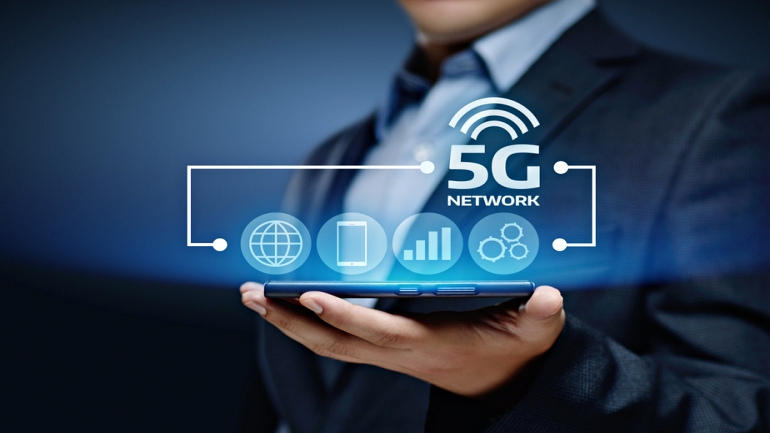US telecoms will not charge late fees during COVID-19 pandemic Major US telecommunications companies such as AT&T, Comcast, Cox, and Verizon have expanded their policies to not charge late payments and cancel service for customers and small businesses affected by the COVID-19 pandemic until June 30. Furthermore, Comcast said that apart from extending the commitment through June 30 and providing its Wi-Fi hotspots to everyone, it would also extend the pause in its data plans to give all customers unlimited data at no extra charge. With tens of millions of Americans working from home, internet providers and the FCC say the internet is performing well. Read more at https://tinyurl.com/yd8wbxuv Google is making Meet free for everyone The tech giant has announced that Google Meet, its premium video conferencing product, will be free for everyone and will be fully accessible over the coming weeks. Previously, the Meet service was available only…
The Global mobile Suppliers Association (GSA), a non-profit industry organization representing mobile industry suppliers worldwide, has expanded its membership by welcoming nine new companies from the global 4G and 5G mobile ecosystem. The GSA said that it has so far accepted Approve-IT as a new ordinary member together with eight new associate members, including the French telecom regulator ARCEP and the Singaporean regulator IMDA. In March 2020, the association also extended its Executive Committee by adding ZTE as an executive member along with Ericsson, Huawei, Intel, Nokia, Qualcomm and Samsung. Joe Barrett, the President of the GSA, said, “The global mobile industry is not only highly competitive, it’s also highly collaborative. 5G doesn’t belong to one company or country; there is a whole ecosystem of regulators, vendors and operators who are working together to drive global harmonization of spectrum, innovation in networks and devices, and new use cases for 5G…
BEREC says COVID-19 won’t break the internet The Body of European Regulators for Electronic Communications (BEREC) has announced that the increase in Internet usage across the continent is more or less stabilizing and that networks have been able to withstand the pressure. BEREC said that national regulatory authorities (NRAs) have reported “a stabilization in the overall traffic, but some NRAs still observe an increase of the overall traffic.” Some operators have expanded their network’s capacity to cope with the steady growth of traffic. According to the organization, “operators, which did not take any such measure, are still closely monitoring their network’s capacity to check if an upgrade is necessary.” Read more at https://tinyurl.com/rxmg53l Vodafone slashes costs of core network functions across Europe using VMware’s telco cloud The UK-based telecoms operator Vodafone has completed the deployment of a single digital network architecture across all of its 21 European business markets, using…
Work from home: Can the telecoms industry take the strain? Many businesses opt for remote working due to the ongoing coronavirus crisis, and this has led to a dramatic increase in the use of online services. The additional pressure is proving problematic for the telecoms industry in Spain, which has reported a 40 percent increase in data consumption and a 50 percent increase in mobile phone usage. Movistar (Telefonica), Orange, Vodafone, Masmovil, and Euskaltel have issued a joint statement in anticipation of the national lockdown, urging customers to take “intelligent and responsible use of the network and the resources it provides us.” Meanwhile, BT, the UK’s largest telecom provider, said that its network can handle it. Read more at https://tinyurl.com/sm8bms7 Vodafone unveils five-point plan to combat COVID-19 Vodafone has put forward a five-point plan to maintain network services and assist governments across Europe in controlling the outbreak of coronavirus. The five…
The next-generation wireless technology for digital cellular networks is steadily gaining traction, with significant implementations under way. All of the major carriers are rolling out their 5G networks, targeting large cities that crave super speeds, virtually lag-free connections, extended coverage and other great benefits that are made available by this advanced technology. 5G has already been launched in many different locations around the world, but it is still considered to be in its initial stages. All of the US carriers have now launched some form of 5G cellular network. But what exactly is 5G, how fast is it compared with 4G, what will it bring to VoIP applications, and what are the benefits and drawbacks of this innovative technology? Let’s take a look at 5G in more detail. What is 5G? 5G stands for fifth-generation cellular wireless and is the next generation of telecom networks that entered the…
British officials recommend role for China’s Huawei in 5G network UK officials have proposed allowing Chinese tech giant Huawei to play a limited role in the UK’s future 5G network, resisting calls from the US for a complete ban over fears of Chinese spying. Huawei will be kept out of the sensitive, data-heavy “core” parts of 5G infrastructure, but will be allowed to deploy its equipment in other parts of the network, according to sources speaking to Reuters. This recommendation comes ahead of a meeting of Britain’s National Security Council next week to decide how to deploy Huawei equipment. In addition, this proposal would satisfy Britain’s two largest telecoms operators, BT and Vodafone, which already use Huawei equipment and are against a total ban. Read more at: https://tinyurl.com/szmovzy CityFibre buys FibreNation from debt-laden TalkTalk for £200 million Britain’s TalkTalk Telecom Group has agreed to sell its FibreNation full-fibre network business…
Samsung Electronics has completed an agreement to acquire network services provider TeleWorld Solutions (TWS). Headquartered in Chantilly, Virginia, TWS provides network design, testing and optimization services to mobile service and cable operators, equipment OEMs and other companies in the United States. This acquisition is expected to help Samsung address the need for end-to-end support in delivering network solutions aimed at upgrading the 5G and 4G LTE networks, and providing connectivity service advancements in the US. Paul Kyungwhoon Cheun, Executive Vice President and Head of Networks Business at Samsung Electronics, said, “The acquisition of TWS will enable us to meet mobile carriers’ growing needs for improving their 4G and 5G networks, and eventually create new opportunities to enhance our service capabilities to our customers. Samsung will continue to drive innovation in communications technology, while providing optimization services for network deployments that accelerate US 5G network expansion.” Under the agreement,…
Telefonica piloting blockchain across 8,000 companies Telecoms multinational Telefonica has teamed up with the Association of Science and Technology Parks (APTE) to provide approximately 8,000 companies in Spain with access to a secure, decentralised blockchain network. Telefonica plans to launch a three-month pilot project that will encourage companies to develop their own decentralised applications on the blockchain at no extra cost, and will also allow them to experiment with their own digital tokens. Blockchain is being widely adopted in a variety of industries, especially in the field of IoT, where 75 percent of IoT technology users in the US already use blockchain or plan to do so by the end of 2020. Read more at: https://tinyurl.com/t8z8p9d Samsung Galaxy Fold sales figures revealed, and they’re worse than earlier reports Samsung Electronics sold close to half a million of its Galaxy Fold smartphones last year. Speaking to the Yonhap News Agency at CES 2020,…
An independent news platform Telecoms.com has recently published its Annual Industry Survey 2019, with the main focus being on topics such as industry updates, 5G rollout, digital transformation, the Internet of Things (IoT), as well as the modernization of Operations Support Systems (OSS) and Business Support Systems (BSS). The survey, covering the industry landscape over the last 12 months and projecting into 2020, has revealed an optimistic forecast that is mainly supported by the launch of 5G commercial services, innovations and progress in other important areas of the industry. According to the report, the single biggest change in the industry landscape over the past year was the deployment of commercial 5G services in different parts of the world. Regardless of the fact that the best-selling service is high-speed Internet access (mobile and fixed), B2B services, including 5G serving other vertical industries, will undoubtedly play a much more significant role…
Apple now owns Intel’s mobile modem business Intel, a leader in the semiconductor industry, has completed the sale of the majority of its smartphone modem business to Apple. The company said this transaction enables it to focus on developing 5G network technology while maintaining the ability to create modems for non-smartphone applications, such as PCs, Internet of Things (IoT) devices and autonomous vehicles. Apple now uses Qualcomm for 4G LTE and 5G modems for iPhones. With this acquisition, Apple is planning to develop its own modems for smartphones in 2021. Read more at: https://tinyurl.com/rqmu724 Orange unveils new five-year grand plan Orange, a French multinational telecommunications corporation, has introduced “Engage 2025”, its new strategy that follows on from the Essentials 2020 plan launched in 2015. The corporation has revealed its goals for the coming years, emphasizing that its business model will be guided by social and environmental responsibility. Considering the operator’s business…













